The Fertility Diet: Tips, Meal Plan, Recipes, Pros, And Cons
Boost your reproductive health through this tailored dietary approach!

Image: Shutterstock
The fertility diet is a structured approach to enhance reproductive health for people planning to conceive. It revolves around specific dietary choices and lifestyle adjustments that are designed to positively impact fertility. While it doesn’t guarantee immediate results, this diet aims to help create an optimal condition for conception.
The diet emphasizes the pivotal role of essential nutrients in regulating hormones, improving egg quality, and supporting overall reproductive function, particularly in females. This approach encourages the consumption of foods rich in vitamins, minerals, antioxidants, and healthy fats and advises against trans fats, excessive sugar, caffeine, alcohol, and processed meats.
Although it does not provide a guaranteed solution, the fertility diet offers a holistic strategy to enhance fertility by promoting balanced nutrition, weight management, stress reduction, physical activity, and quality sleep. In this article, we look at this diet in detail and discuss foods to include, meal plans, useful tips, and more! Scroll down to read more.
 At A Glance: The Fertility Diet
At A Glance: The Fertility Diet- Principle: Emphasizes the intake of nutrient-rich foods, especially specific nutrients that boost fertility and promote reproductive health.
- Purpose: Enhancing fertility, improving egg quality, and creating favorable conditions for conception.
- Who It Is For: People trying to conceive and women seeking to boost their fertility with a dietary approach.
- Duration: Long-term, if followed as a lifestyle or short-term, during the preconception period.
- Who Should Avoid: Those who have dietary restrictions, diabetes, kidney disease, or allergies to specific fertility-friendly foods.
- Cons: Can be strict, may cause stress, and may have variable results.
In This Article
What Is A Fertility Diet?
The fertility diet is a specialized eating pattern plan designed to boost women’s reproductive health. It’s not like other traditional diet plans and encourages a balanced dietary approach, with a special focus on the careful selection of foods that can positively impact the factors influencing fertility.
The diet typically includes vegetables, fruits, whole grains, and protein-rich foods that provide essential vitamins, minerals, and antioxidants, which may have a positive impact on reproductive health. In the next section, we delve deeper into whether a diet can affect women’s fertility.
Key Takeaways
- A fertility diet emphasizes the consumption of nutrient-rich foods and lifestyle adjustments to enhance reproductive health.
- Its key dietary components include consuming plant-based foods, dairy, meat, and food rich in specific nutrients such as folate, iron, and omega-3 fatty acids that support hormonal balance and may boost fertility.
- While the fertility diet offers various potential benefits, individuals should be mindful of dietary restrictions and consult healthcare professionals for personalized guidance.
Can Diet Affect Women’s Fertility?
Diet may significantly affect women’s fertility by influencing hormonal balance, promoting weight management, and overall reproductive health. A balanced diet rich in nutrients such as folatei A B vitamin essential for DNA synthesis, red blood cell formation, cell growth, and maintaining reproductive health. , omega-3, iron, and antioxidants supports healthy egg development and may help regulate hormones (1).
Conversely, trans fats, prevalent in processed and fried foods, are linked to ovulatory infertility. Limiting their intake may also help to a great extent. Moreover, a healthy diet may influence several other factors, which may impact fertility. For instance, insulin resistance may disrupt fertility. Blood sugar control through a diet low in refined sugars and carbohydrates reduces the risk of insulin resistance (2), (3).
Also, maintaining a healthy weight through diet is crucial since excess weight may lead to irregular menstrual cycles while being underweight may halt ovulationi Release of a mature egg from one of the ovaries. It typically occurs midway through the menstrual cycle. .
 Quick Tip
Quick TipRemember that diet alone may not guarantee a positive result and conception depends on multiple other factors. However, certain foods may influence a few factors conducive to fertility. Learn more about the foods that support fertility in the next section.
Foods That May Boost Fertility In Females
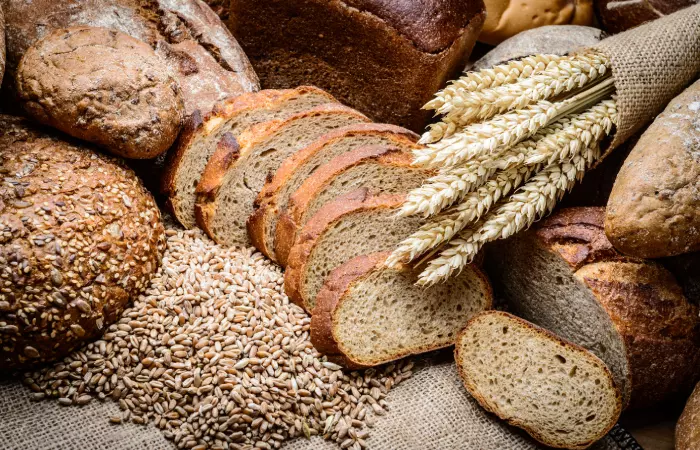
1. Leafy Greens
Leafy greens, such as spinach, are rich in folate and iron, which are essential for healthy ovulation and preventing anemia, factors that are crucial for reproductive health (4). Incorporating these greens into your diet may support fertility.
2. Berries
Berries such as blueberries and strawberries are not only delicious but also packed with antioxidants that help combat oxidative stressi An imbalance between free radical production and the body's ability to neutralize them, which harms cells and tissues. (5). This may potentially increase the likelihood of successful conception (6).
3. Citrus Fruits
Citrus fruits, such as oranges and grapefruits, are high in vitamin C. A study on mice indicates that this antioxidant supports healthy ovulation and iron absorption and is essential for better reproductive function (7). However, more human studies are required in this regard.
4. Whole Grains
Whole grains offer complex carbohydrates that may help stabilize blood sugar levels and reduce the risk of insulin resistance (8). This helps maintain hormonal balance, which is critical for fertility. Incorporating whole grains into your meals may aid your reproductive health (9).
5. Healthy Fats
Avocados and nuts contain monounsaturated fats that are crucial for hormonal regulation. These healthy fats are essential for reproductive health and may create a conducive hormonal environment for enhanced fertility (10).
6. Lean Proteins
Lean proteins, such as poultry and tofu, provide essential amino acids that are necessary for maintaining hormonal balance and overall reproductive function. Adequate protein intake may support fertility (11).
7. Folate-Rich Foods
It’s essential to include nutrients like folic acid (a form of folate), which has well-documented benefits for both fertility and pregnancy. Folate is vital for preventing birth defects and maintaining overall reproductive well-being (12). You may read about more folic acid benefits extending beyond fertility, as it promotes skin, hair, and overall health. Foods like lentils and chickpeas are rich in folate and may contribute to a healthier reproductive system.
We have discussed foods that can positively affect your reproductive health. However, the intake of a few foods might affect your overall well-being and impact reproductive health. Scroll down to learn more about the foods to stay away from while on a fertility diet.
Foods To Avoid On A Fertility Diet
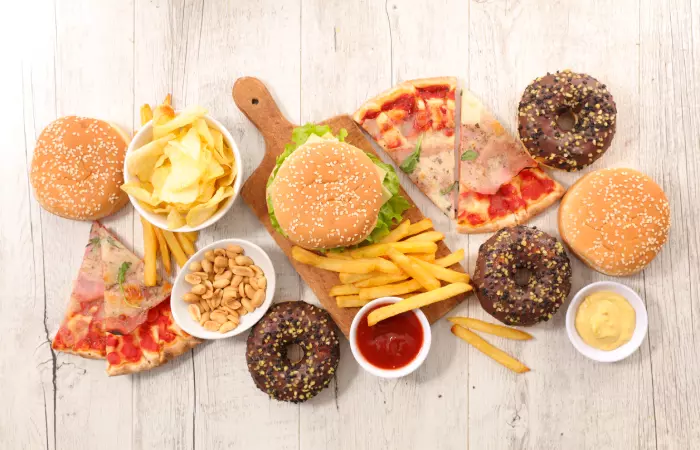
1. Trans-Fats
They are commonly present in fried and processed foods, including fast-food items and packaged snacks. These fats are undesirable for fertility due to their association with inflammation and insulin resistance (6). Such conditions may disrupt hormonal balance and potentially impede successful conception.
2. High Sugar Foods
Excessive sugar consumption results in erratic blood sugar levels. A study on female rats found that prolonged exposure to high sugar levels could lead to insulin resistance, impacting ovulation and hormonal regulation (13). This may potentially pose challenges to fertility. However, more research on humans is warranted in this regard.
3. Caffeine
While moderate caffeine intake is generally considered safe, excessive consumption, typically defined as several cups a day, may have fertility implications (14). Caffeine has the potential to affect reproductive capabilities, making it advisable to monitor and limit caffeine intake, particularly during efforts to conceive.
4. Alcohol
Heavy alcohol consumption has been correlated with diminished fertility (15). Hence, reduce the consumption of alcohol, especially during the preconception period.
5. High-Mercury Fish
Certain fish varieties, such as swordfish and king mackerel, have a greater risk of mercury contamination. Mercury exposure can be detrimental to fertility and fetal development (16). Limit the consumption of these fish and opt for those with lower mercury content, such as salmon or trout.
6. Soy Products
Although soy can be a part of a healthy diet, excessive consumption of soy-based foods or supplements may influence estrogen levels and affect fertility (17). Practicing moderation when including soy in one’s diet is a prudent approach.
7. Artificial Sweeteners
A study on mice found that artificial sweeteners could interfere with hormonal balance and fertility (18). While more human studies are required in this regard, limiting the use of artificial sweeteners in favor of natural alternatives, such as honey or maple syrup, is advised for individuals focused on improving their fertility to minimize potential risks.
Incorporating foods that can positively influence factors that can boost fertility, avoiding restricted foods, and following a few tips can improve reproductive health in women. Check out the next section to learn more.
Tips To Boost Fertility In Women

- Maintain A Healthy Weight
Keeping your weight in a healthy range is important for maintaining hormone levels and the menstrual cycle, which is crucial for fertility. Being overweight or underweight can make it harder to conceive. Aim for a balanced weight through a good diet and regular exercise.
- Manage Stress
High stress levels can mess with your hormones and make it tough to get pregnant. Try relaxation techniques such as meditation, yoga, or deep breathing to lower stress.
- Limit Alcohol And Caffeine
Too much alcohol or caffeine can hurt your fertility. It’s a good idea to cut back on these when you’re trying to conceive.
- Get Regular Exercise
Staying active is not only good for your overall health but also for your reproductive system. Exercise helps balance your hormones and manage your weight. Just remember not to overdo it.
- Understand Your Cycle
Keep track of your menstrual cycle and when you ovulate. Knowing when you’re most fertile can help you time things right for getting pregnant.
- Consider Preconception Care
Before you start trying for a baby, see your doctor for a checkup. They can make sure you are in good health, recommend any necessary supplements, and discuss vaccinations.
- Avoid Smoking And Drugs
Smoking and recreational drugs can seriously affect your fertility. Quitting smoking and staying away from these substances can improve your chances of getting pregnant.
 Quick Tip
Quick TipWhile dietary changes are key, adding specific supplements to your routine can offer further benefits for enhancing fertility. Scroll down to know more.
Nutritional Supplements For Fertility
Alongside a balanced diet, specific vitamins and minerals play a crucial role in boosting fertility. These supplements act as a safety net, filling any nutritional gaps that may affect your reproductive health.
- Folic Acid: One of the most crucial nutrients for women attempting to conceive, folic acid promotes proper cell division, is essential throughout pregnancy, and helps avoid neural tube problems (19). Additionally, it supports general reproductive health by balancing hormone levels.
- Zinc: Ovulation and hormone synthesis depend on zinc (20). This mineral also aids in the development and growth of eggs and boosts the immune system. Women who are attempting to conceive may benefit from taking them as supplements because zinc deficiency can affect fertility.
- Vitamin D: Menstrual cycle regulation and healthy ovulation depend on vitamin D (21). Additionally, this vitamin enhances immunity and may improve the effectiveness of reproductive therapies.
- Iron: Adequate iron levels help prevent anemia, which can affect fertility (22). Additionally, the mineral promotes normal blood flow, which is important for a healthy reproductive system.
The next section contains a shopping list to save you the hassle of figuring out what to buy for your fertility diet on your next visit to the grocery store. Scroll down.
Fertility Diet Shopping List
Proteins
- Skinless chicken breast or thigh
- Salmon or other fatty fish (like trout)
- Tofu or tempeh
- Lean ground turkey or lean beef
- Eggs
Grains
- Quinoa
- Brown rice
- Whole-grain pasta
- Rolled oats
- Whole-grain bread or wraps
Fruits
- Berries (strawberries, blueberries, and raspberries)
- Bananas
- Apples
- Citrus fruits (oranges and grapefruits)
- Peaches or nectarines
- Pears
- Mangoes
Vegetables
- Leafy greens (spinach, kale, and arugula)
- Broccoli
- Brussels sprouts
- Asparagus
- Bell peppers
- Carrots
- Cucumbers
- Tomatoes
- Avocado
- Zucchini
- Sweet potatoes
Legumes
- Lentils
- Chickpeas
- Black beans
Dairy And Dairy Alternatives
- Greek yogurt
- Low-fat cottage cheese
- Almond milk or other plant-based milk
Nuts And Seeds
- Almonds
- Walnuts
- Chia seeds
- Flaxseeds
Herbs And Spices
- Cinnamon
- Turmeric
- Basil
- Oregano
- Thyme
Healthy Fats
- Olive oil
- Avocado oil
- Coconut oil
Condiments And Extras
- Honey
- Tahini
- Hummus
- Balsamic vinaigrette dressing
Snacks
- Mixed nuts
- Dried apricots
- Whole-grain crackers
Beverages
- Water
- Herbal teas (chamomile or peppermint)
- Green tea (in moderation)
Frozen Foods (Optional)
- Frozen mixed berries
- Frozen broccoli
To follow a balanced and healthy fertility diet regularly, keeping a meal plan handy can help. Check out a sample meal plan in the section below.
Sample Fertility Diet Meal Plan
Day 1
Breakfast:
Greek yogurt parfait (1 cup) with mixed berries (1/2 cup) and honey (1 tablespoon), and cooked quinoa (1 cup)
Mid-Morning Snack: A handful of almonds (about 1 oz) and a small apple
Lunch: Grilled chicken breast (4 oz) with quinoa (1/2 cup) and a side of steamed broccoli (1 cup)
Afternoon Snack: Carrot sticks (1 cup) with hummus (2 tablespoons)
Dinner: Baked salmon (4 oz) with asparagus (1 cup) and a quinoa salad (1/2 cup)
Day 2
Breakfast:
Spinach and mushroom omelet with 2 eggs, whole-grain toast (1 slice)
Mid-Morning Snack: Low-fat cottage cheese (1/2 cup) with pineapple (1/2 cup)
Lunch: Lentil soup (1 cup) with a mixed greens salad (2 cups) and vinaigrette dressing (2 tablespoons)
Afternoon Snack: Greek yogurt (1 cup) with half a sliced banana and a drizzle of honey (1 tablespoon)
Dinner: Grilled shrimp (4 oz) with brown rice (1/2 cup) and roasted Brussels sprouts (1 cup)
Day 3
Breakfast:
Oatmeal (1 cup) topped with sliced peaches (1/2 cup) and chopped walnuts (1 tablespoon),and chia seed pudding (1 cup)
Mid-Morning Snack: A small bunch of grapes (about 1 cup)
Lunch: Quinoa (1 cup) and black bean salad with avocado (1/4 avocado) and lime dressing (2 tablespoons)
Afternoon Snack: Sliced cucumber (1 cup) with tzatziki sauce (2 tablespoons)
Dinner: Baked chicken (4 oz) with sweet potato (1 medium) and green beans (1 cup)
Day 4
Breakfast:
2 whole-grain waffles with Greek yogurt (1/2 cup) and fresh strawberries (1/2 cup), and 1 spinach and feta wrap
Mid-Morning Snack: A handful of mixed nuts (about 1 oz)
Lunch: Spinach and kale salad (2 cups) with grilled tofu (4 oz) and balsamic vinaigrette dressing (2 tablespoons)
Afternoon Snack: Sliced bell peppers (1 cup) with guacamole (2 tablespoons)
Dinner: Baked cod (4 oz) with quinoa (1/2 cup) and roasted carrots (1 cup)
Day 5
Breakfast:
Green smoothie with spinach, banana, almond milk (1 cup), and a scoop of protein powder
Mid-Morning Snack: Sliced pear (1/2 pear) with a tablespoon of almond butter
Lunch: Chickpea and vegetable stir-fry with brown rice (1 cup)
Afternoon Snack: Cherry tomatoes (1 cup) with mozzarella cheese
Dinner: Turkey chili (1 cup) with a side of mixed greens (1 1/2 cups)
Day 6
Breakfast:
2 scrambled eggs with diced tomatoes, spinach, and whole-grain toast (1 slice)
Mid-Morning Snack: A small orange
Lunch: Quinoa (1 cup) and roasted vegetable bowl with a tahini drizzle (2 tablespoons)
Afternoon Snack: Celery sticks (1 cup) with peanut butter (2 tablespoons)
Dinner: Baked trout (4 oz) with quinoa (1/2 cup) and sautéed kale (1 cup)
Day 7
Breakfast:
2 whole-grain pancakes with mixed berries (1/2 cup) and a dollop of Greek yogurt (1/4 cup) mixed with a scoop of protein powder
Mid-Morning Snack: A handful of dried apricots (about 1 oz)
Lunch: Lentil and vegetable stew (1 cup) with a side of mixed greens (2 cups)
Afternoon Snack: Half a mango with a squeeze of lime
Dinner: Grilled lean beef (4 oz) with brown rice (1/2 cup) and sautéed kale (1 cup)
While a meal plan gives you a day-to-day breakdown of your meals, you can make a wide range of mouth-watering recipes from these ingredients. Check out a few recipes in the next section.
Fertility Diet Recipes
Breakfast
1. Greek Yogurt And Berry Parfait
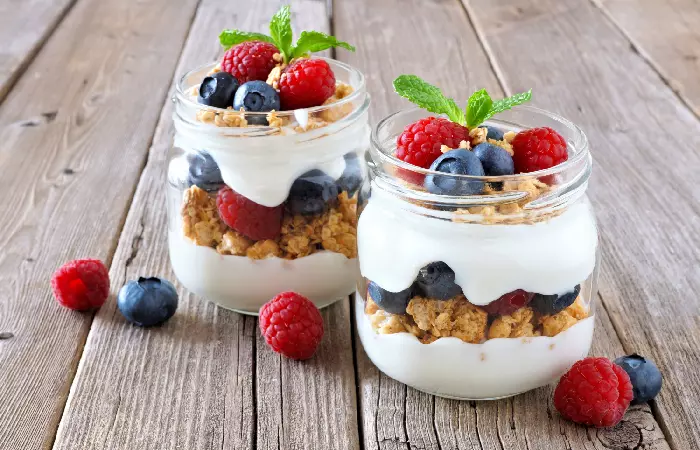
Ingredients
- 1 cup of Greek yogurt
- 1/2 cup of mixed berries (strawberries, blueberries, raspberries)
- 1 tablespoon of honey
- 1/4 cup of granola (optional)
How To Prepare
- In a glass or bowl, start with a layer of Greek yogurt.
- Add a layer of mixed berries.
- Drizzle honey over the berries.
- If desired, sprinkle granola on top for added crunch and fiber.
- Repeat the layers as desired.
Lunch
2. Quinoa And Black Bean Salad
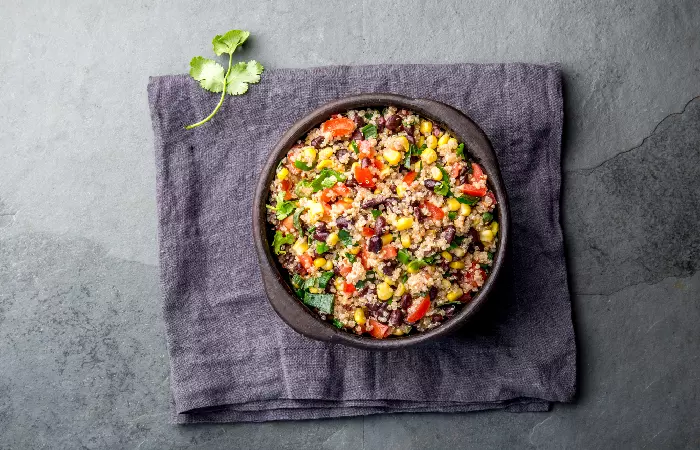
Ingredients
- 1 cup of cooked quinoa
- 1/2 cup of black beans (canned, rinsed, and drained)
- 1/4 cup of diced bell peppers
- 1/4 cup of diced tomatoes
- 1/4 cup of diced cucumber
- 2 tablespoons of chopped fresh cilantro
- 2 tablespoons of olive oil
- Juice of 1 lime
- Salt and pepper to taste
How To Prepare
- In a large bowl, combine cooked quinoa, black beans, diced bell peppers, tomatoes, cucumber, and fresh cilantro.
- In a separate small bowl, whisk together olive oil and lime juice.
- Pour the dressing over the salad and toss to combine.
- Season with salt and pepper to taste.
- Chill in the refrigerator for about 30 minutes before serving.
Dinner
3. Baked Salmon With Asparagus
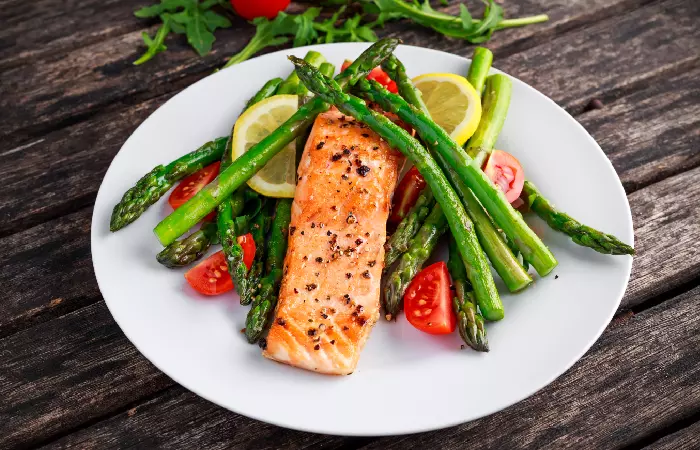
Ingredients
- 4 salmon filets (4 oz each)
- 1 bunch of asparagus spears
- 2 tablespoons of olive oil
- 1 lemon, sliced
- 2 cloves of garlic, minced
- Salt and pepper to taste
How To Prepare
- Preheat your oven to 375°F (190°C).
- Place the salmon filets on a baking sheet lined with parchment paper.
- Arrange the asparagus around the salmon on the same baking sheet.
- Drizzle olive oil over the salmon and asparagus.
- Sprinkle minced garlic, salt, and pepper evenly over the salmon and asparagus.
- Place lemon slices on top of the salmon.
- Bake for about 15-20 minutes or until the salmon flakes easily with a fork and the asparagus is tender.
- Serve this with a side of quinoa or brown rice.
Snack
4. Greek Yogurt With Almonds And BerriesIngredients
- 1 cup of Greek yogurt
- 1/4 cup of mixed berries (strawberries, blueberries, and raspberries)
- A handful of almonds (about 1 oz)
- 1 teaspoon of honey (optional)
How To Prepare
- In a bowl, spoon Greek yogurt.
- Top with mixed berries and almonds.
- Drizzle honey over the yogurt if desired.
- Keep it in the refrigerator if desired, for 30 minutes before serving.
While these fertility-boosting recipes offer delicious ways to support reproductive health, it’s essential to weigh the pros and cons of a fertility diet before going ahead with it. This will help you set realistic goals. Scroll down.
Pros And Cons Of The Fertility Diet
Pros
- Leads To Healthier Eating: It encourages eating nutritious foods, which can benefit your overall health, not just fertility.
- May Enhance Hormonal Balance: It may help regulate your hormones, making your menstrual cycles more regular.
- May Aid Weight Control: It promotes a healthy weight, which is important for fertility. Being too heavy or underweight can affect your chances of getting pregnant.
- May Protect The Egg: Fertility-friendly foods are often rich in antioxidants, which may protect the eggs and sperm from harm.
Cons
- Is Not A Quick Fix: Following a fertility diet doesn’t guarantee that you’ll get pregnant right away. Fertility depends on many factors.
- Has Dietary Limits: A fertility diet can be strict, especially if you have allergies and restrictions, which might make it harder to socialize or cause stress.
- Its Results May Vary: What works for one person might not work for another, as fertility is influenced by a mix of things, including your genes.
- May Increase Stress: Feeling pressured to stick to a strict diet can add to the stress in the preconception period, which may affect your fertility negatively.
Frequently Asked Questions
Are there specific nutrients important for fertility?
Yes, folate, iron, antioxidants, and healthy fats are some nutrients that play a crucial role in fertility. These nutrients support hormonal balance and reproductive health.
Should I take supplements for fertility?
While a balanced diet is the primary source of fertility-boosting nutrients, supplements may be recommended if you have deficiencies. Consult a healthcare professional for personalized advice.
How does a fertility diet affect male fertility?
A fertility diet can positively impact male fertility by promoting overall health and providing essential nutrients. It may improve sperm quality and motility, benefiting couples who are trying to conceive.
How long should I follow a fertility diet before expecting results?
The timeline for seeing results varies among individuals. Generally, it may take several months of consistent adherence to a fertility diet to observe improvements in reproductive health.
Can a fertility diet help with underlying fertility issues?
A fertility diet can complement other fertility treatments. However, infertility and other issues are caused by multiple factors that may require medical attention. Therefore, immediately consult a doctor if you have trouble conceiving for an early diagnosis and treatment.
Illustration: The Fertility Diet: Tips Meal Plan Recipes Pros And Cons
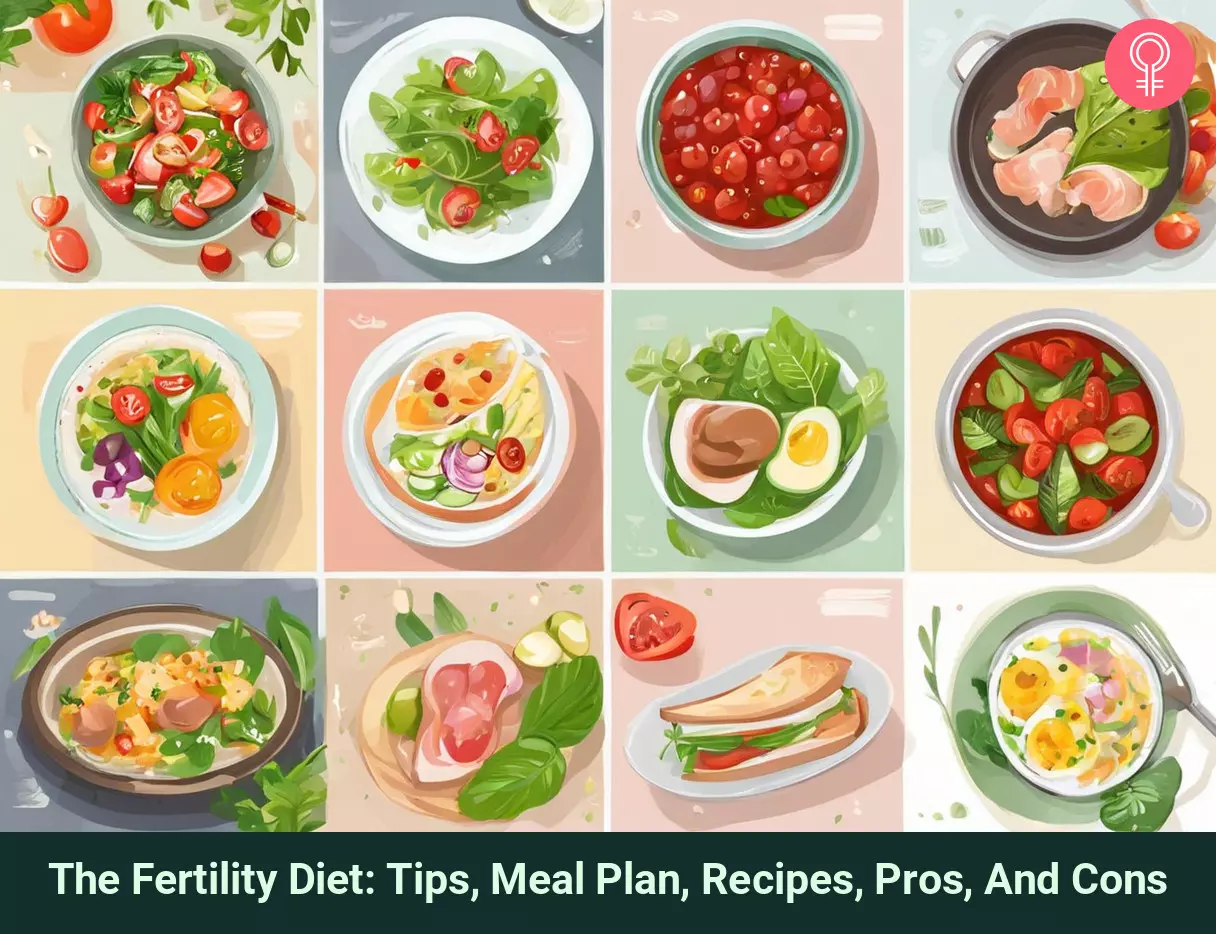
Image: Stable Diffusion/StyleCraze Design Team
A fertility diet is a tailored approach for boosting reproductive health and improving the chances of conception. Watch the video below to learn more about the benefits of this diet and the foods you can eat if trying to conceive.
References
Articles on StyleCraze are backed by verified information from peer-reviewed and academic research papers, reputed organizations, research institutions, and medical associations to ensure accuracy and relevance. Read our editorial policy to learn more.
- Diet and human reproductive system: Insight of omics approaches
https://www.ncbi.nlm.nih.gov/pmc/articles/PMC9094499/ - Effect of low carbohydrate diets on insulin resistance and the metabolic syndrome
https://www.ncbi.nlm.nih.gov/pmc/articles/PMC8500369/ - The effect of insulin resistance on ovulation induction with clomiphene citrate in non-polycystic ovary syndrome (PCOS) women
https://www.ncbi.nlm.nih.gov/pmc/articles/PMC9420237/ - Folic acid
https://www.ncbi.nlm.nih.gov/books/NBK554487/ - Bioactive compounds and antioxidant activity in different types of berries
https://www.ncbi.nlm.nih.gov/pmc/articles/PMC4632771/ - The influence of metabolic factors and diet on fertility
https://www.ncbi.nlm.nih.gov/pmc/articles/PMC10005661/ - Vitamin C restores ovarian follicular reservation in a mouse model of aging
https://www.ncbi.nlm.nih.gov/pmc/articles/PMC6624328/ - Effect of whole grains on insulin sensitivity in overweight hyperinsulinemic adults
https://pubmed.ncbi.nlm.nih.gov/11976158/ - Insulin resistance/hyperinsulinemia and reproductive disorders in infertile women
https://www.ncbi.nlm.nih.gov/pmc/articles/PMC5904600/# - The role of avocados in maternal diets during the periconceptional period, pregnancy, and lactation
https://www.ncbi.nlm.nih.gov/pmc/articles/PMC4882725/ - Nutrition and female fertility: An interdependent correlation
https://www.ncbi.nlm.nih.gov/pmc/articles/PMC6568019/ - Folic acid supplementation during the preconception period: A systematic review and meta-analysis
https://pubmed.ncbi.nlm.nih.gov/29802877/# - High-fat high-sugar diet disrupts the preovulatory hormone surge and induces cystic ovaries in cycling female rats
https://www.ncbi.nlm.nih.gov/pmc/articles/PMC5740526/ - Effects of lifestyle factors on fertility: practical recommendations for modification
https://www.ncbi.nlm.nih.gov/pmc/articles/PMC8812443/ - Problem drinking in women evaluated for infertility
https://www.ncbi.nlm.nih.gov/pmc/articles/PMC1523510/# - Mercury exposure and its effects on fertility and pregnancy outcome
https://pubmed.ncbi.nlm.nih.gov/31136080/# - Adult ovarian function can be affected by high levels of soy
https://www.ncbi.nlm.nih.gov/pmc/articles/PMC3139237/# - The impact of non-caloric artificial sweetener aspartame on female reproductive system in mice model
https://www.ncbi.nlm.nih.gov/pmc/articles/PMC10424399/# - Folic Acid and the Prevention of Birth Defects: 30 Years of Opportunity and Controversies
https://pmc.ncbi.nlm.nih.gov/articles/PMC9875360/ - The importance of folate, zinc and antioxidants in the pathogenesis and prevention of subfertility
https://academic.oup.com/humupd/article-abstract/13/2/163/661418?redirectedFrom=fulltext - Vitamin D – roles in women’s reproductive health?
https://pmc.ncbi.nlm.nih.gov/articles/PMC3239848/ - Iron Supplementation
https://www.ncbi.nlm.nih.gov/books/NBK557376/
Read full bio of Mary Sabat
Read full bio of Aparna Mallampalli
Read full bio of Ravi Teja Tadimalla
Read full bio of Payal Karnik








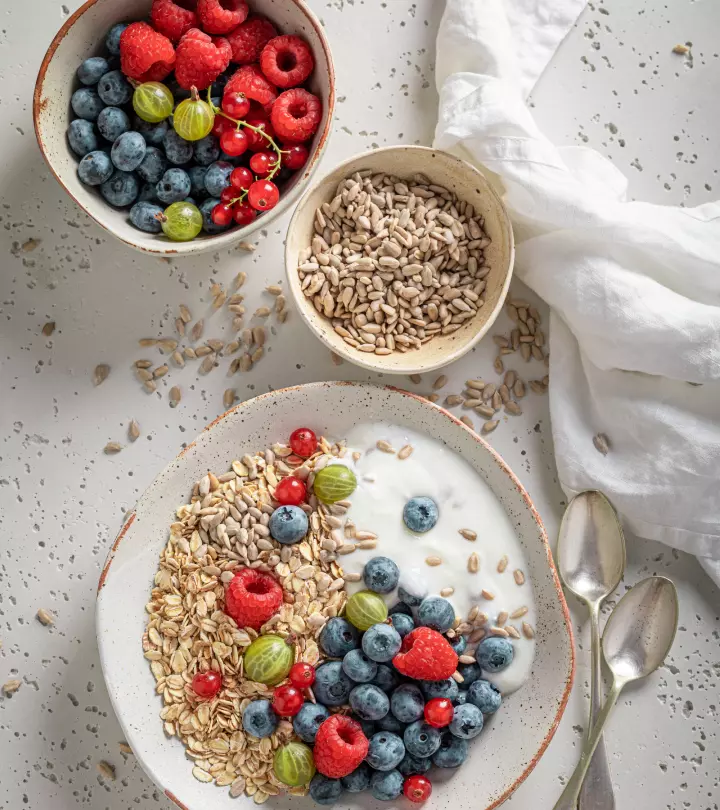


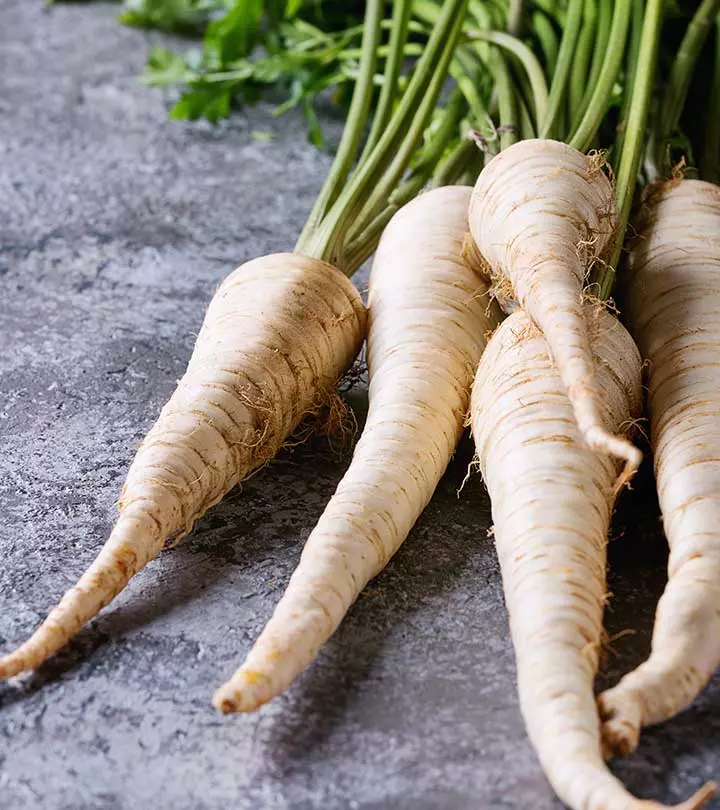
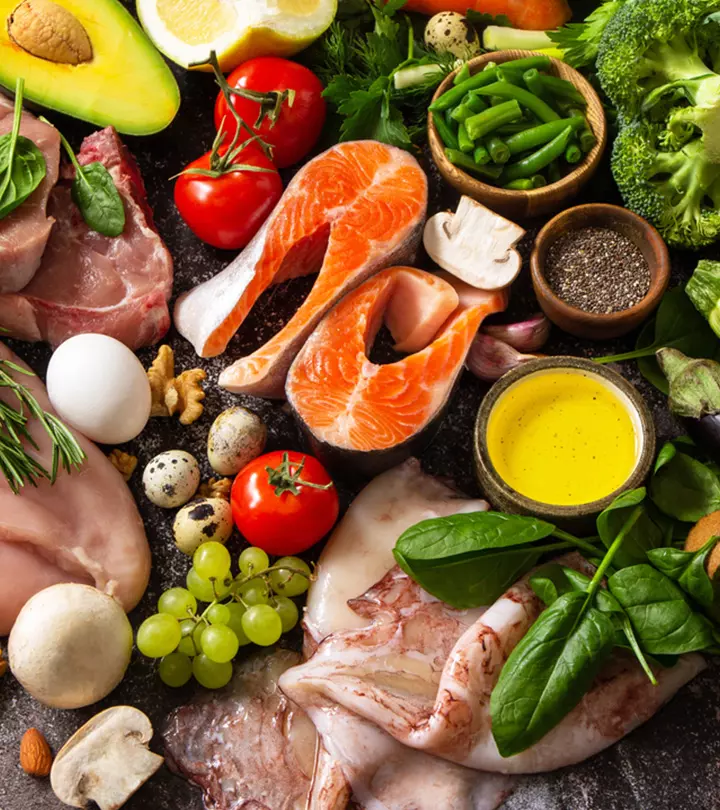

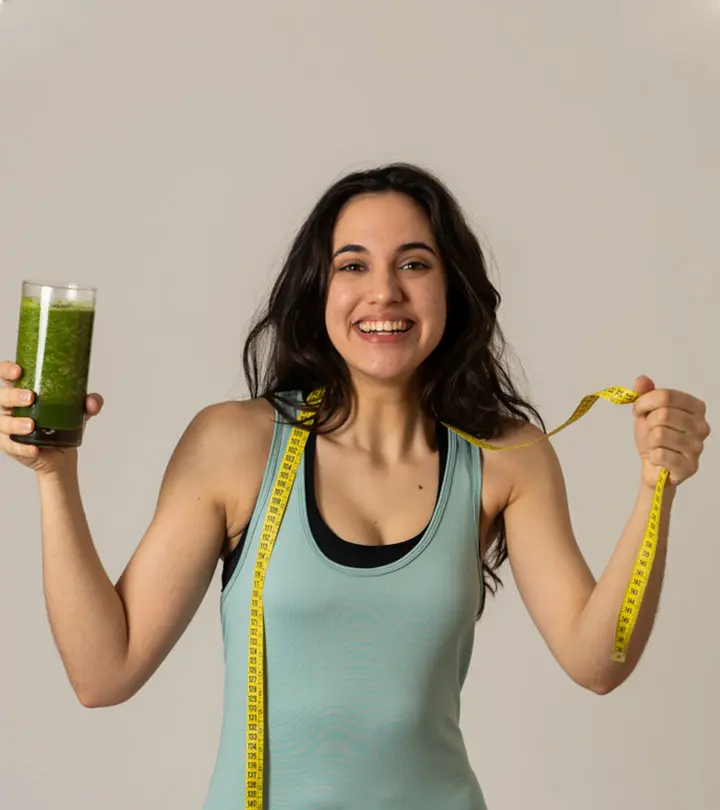
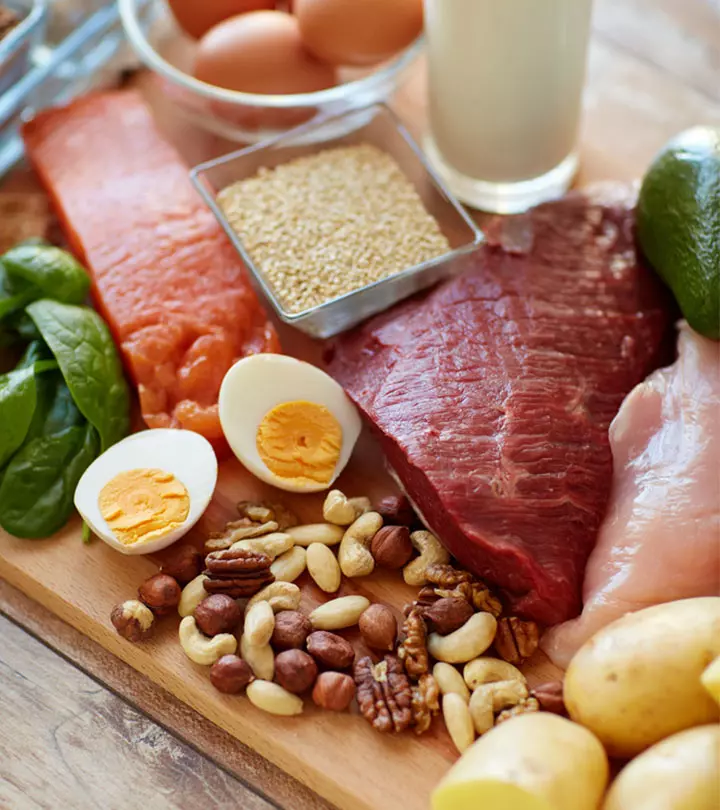
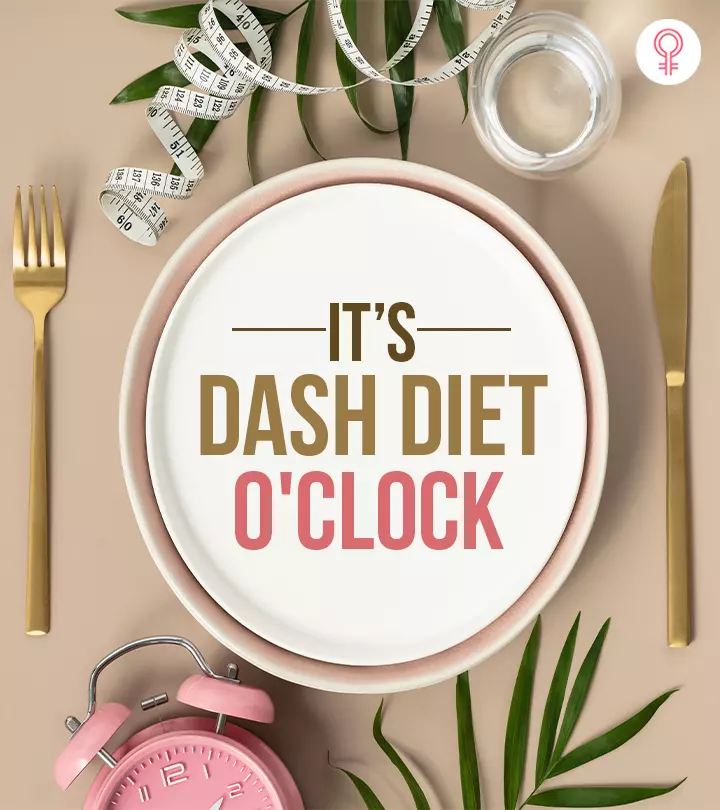

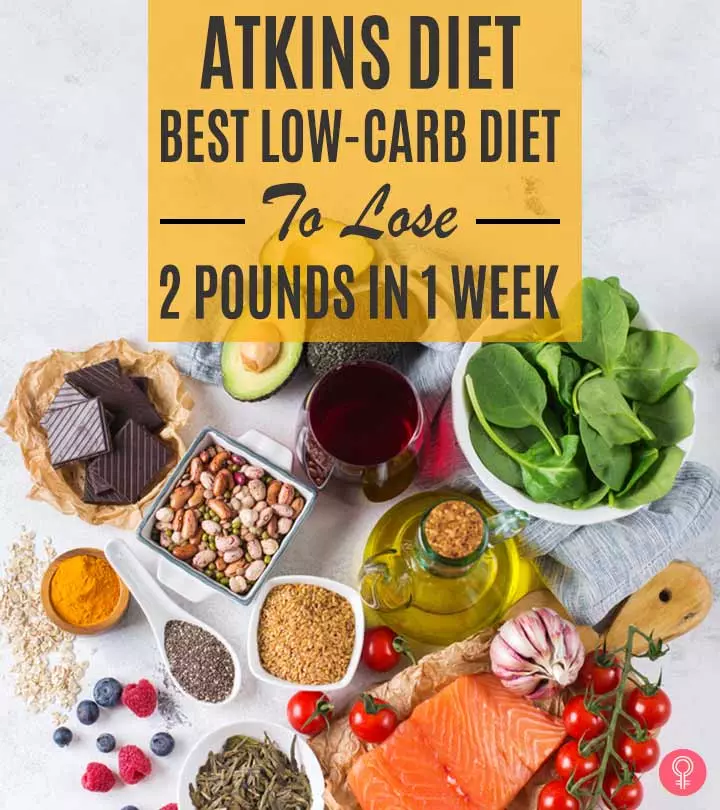


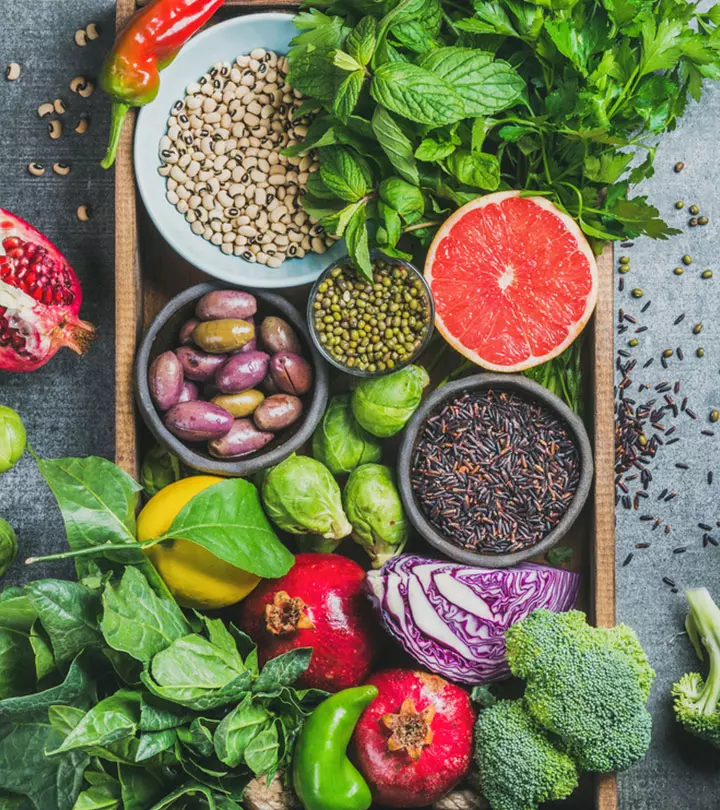
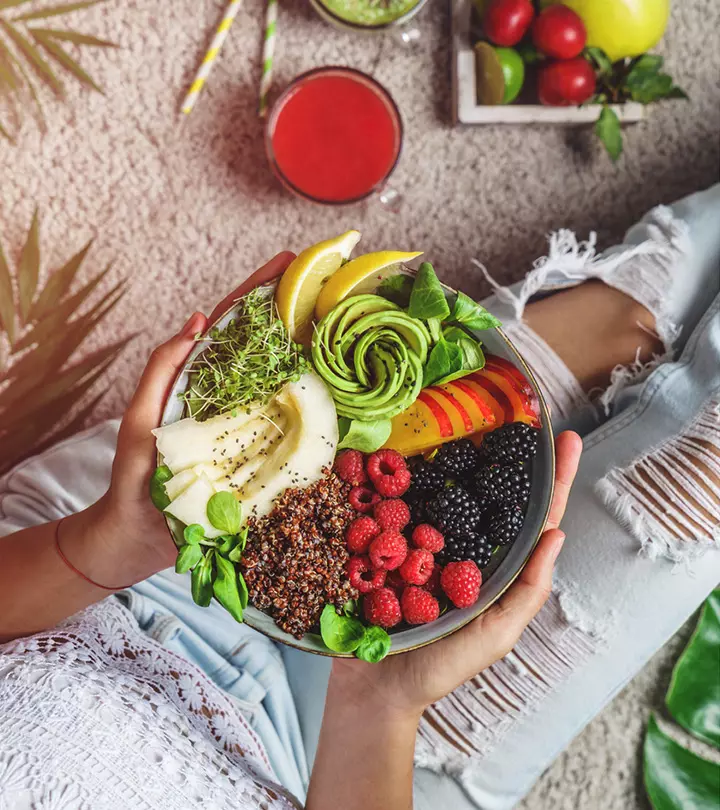
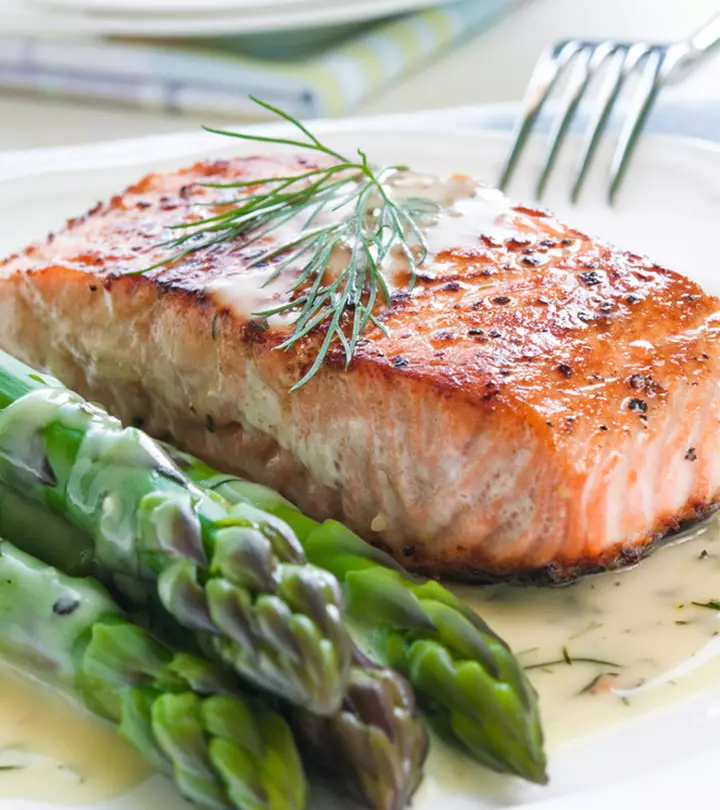

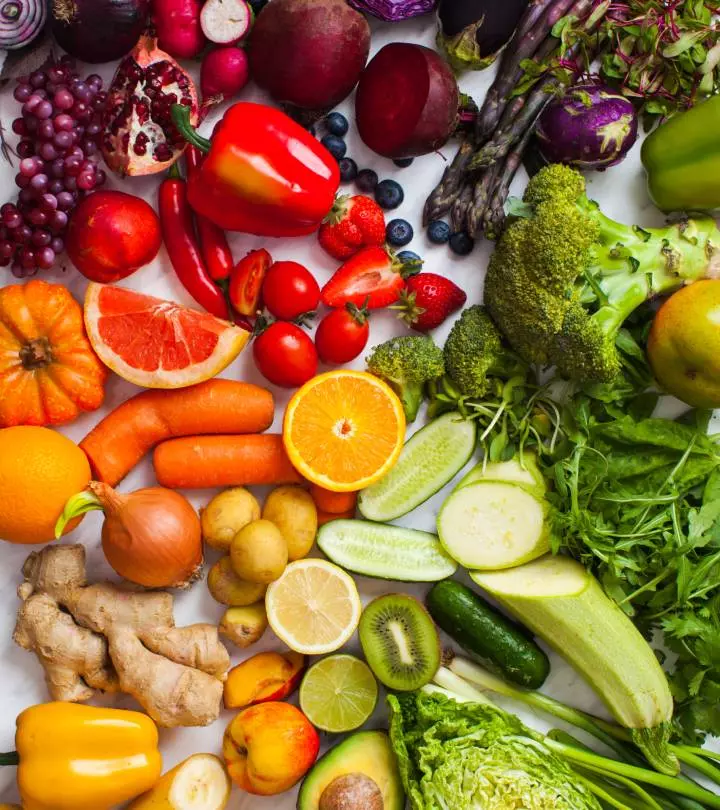
Community Experiences
Join the conversation and become a part of our empowering community! Share your stories, experiences, and insights to connect with other beauty, lifestyle, and health enthusiasts.